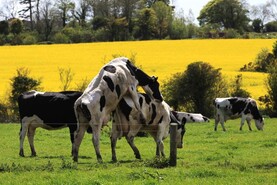The Ovigen project is coming to a conclusion in December 2018, with Sheep Ireland’s Eamon Wall describing it as delivering a long-term legacy for Irish sheep breeding. Eamon said the research has shown that genomics can be successfully used in sheep breeding to allow more accurate selection of superior genetics and fasttrack breeding decisions.
An added benefit of Ovigen and genotyping has been parentage identification, with 17,991 animals genotyped to date. Data presented by Teagasc’s Noirin McHugh shows incorrect parentage remaining a significant issue, with approximately 20% parentage errors recorded.
This is consistent with data presented previously concerning genotyping of some 13,000 sheep. While quite high, Noirin says it was not entirely unexpected, with research from other countries showing a similar level of parentage errors, while the beef sector recorded a parentage error rate of over 17% in its first analysis.
About 2% of animals failed genotyping, which Noirin explains could be due to a number of issues (eg empty samples or samples not read), while another reason for parentage not being correct could be sampling or paperwork errors.
The aim now is to go back through the bank of DNA in the database and see if parentage data can be found for some of these animals, while breeders will also be given an opportunity to rectify sampling errors.
Noirin says that the impact of incorrect parentage can be quite serious, as in addition to buyers not getting the animal they thought they were, it can also have lasting effects on breeding programmes in place on farms.
On the question of finding a longer-term solution for incorrect parentage data, Sheep Ireland’s Kevin McDermott said meetings will now take place with breed societies and a process will be put in place to deal with it.
With regards the continuation of genotyping, Eamon Wall says that the Ovigen budget has been spent, but that Sheep Ireland is committed to finding funding to put a genotyping programme in place for 2018. He said that Sheep Ireland would subsidise the €22/sample fee from 30 April to the tune of €12, with breeders paying €10, a lift of €2 on the previous breeder payment.
He acknowledged that a downside of genotyping has been a slow turnaround time for information and that an automation process is nearly complete which would see samples return much quicker.
Building links between Irish and UK data
A new international genetic evaluations study, which aims to create a platform for an animals’ breeding values to transfer across jurisdictions, has commenced. The study is being headed up by Teagasc PhD student Shauna Fitzmaurice and is being carried out in conjunction with SRUC and the University of Edinburgh.
The study will concentrate firstly on animals in Ireland and the UK, with the first port of call to identify UK animals in the Irish database which have breeding values in both countries. Shauna explained that the research will focus on the Texel, Suffolk and Charollais breeds, as these are the ones with most in common.
The Texel breed has 8,392 animals identified which are common between both countries, while there are 3,313 common Suffolk sheep and 1,727 common Charollais sheep.
The study runs until 2020 and it will be then up to the industry to make a decision to incorporate international data into the Sheep Ireland database.
New measure for ewe efficiency
Teagasc geneticist Noirin McHugh presented a new ewe efficiency measure which breeders will soon be able to access.
The measure is based on the weight of progeny weaned relative to ewe weight and Noirin says breeders can expect to be able to access the report towards the end of the year.
The report can be produced annually once a breeder has a weaning weight of a ewe and her progeny and be best utilised as a benchmark to aid selection and culling decisions. The report will also remove the effect of the ram.
Scrapie SNP chip
Teagasc geneticist Donagh Berry said that he is confident that a platform has been developed that will allow genotyping to now also analyse scrapie status.
He said that cross-analysis of samples shows it working 100%, but it is only on a small number of samples and he wants to do some further work before giving it the green light. If successful, it would be very beneficial in allowing scrapie status to be analysed with other major genes for the €22/sample fee.
New LambPlus App
Sheep Ireland has developed a new app which will allow LambPlus breeders to record information on their phone. Kevin McDermott said this should make it much easier for breeders to achieve a favourable data quality index (DQI) score and added that DQI algorithms are also being updated to minimise fluctuation.






 This is a subscriber-only article
This is a subscriber-only article









SHARING OPTIONS: